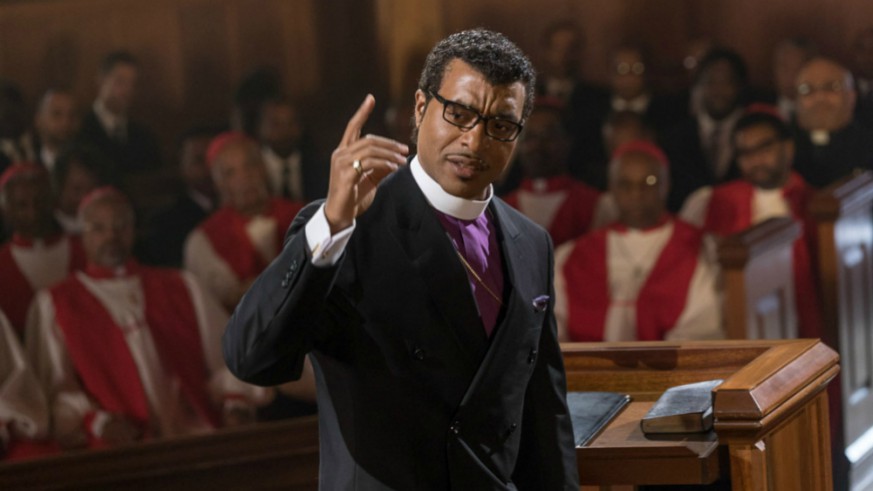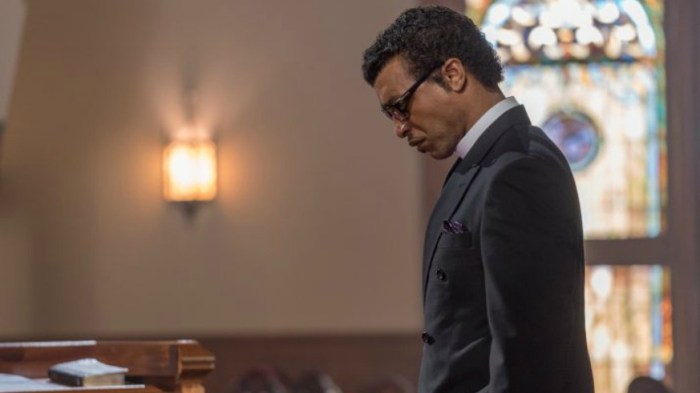In 2004 Carlton Pearson, the former pastor of one of the largest churches in Tulsa, Oklahoma, was declared a heretic by his peers.
Pearson was labelled as such because of his belief in universal reconciliation, which decrees that ultimately all human souls will be admitted to heaven, and immediately put at risk his church, family and future.
Director Joshua Marston quickly recognized both the potential and the importance in Carlton Pearson’s story, though, especially since we now live in a time when almost everyone stubbornly refuses to budge on their opinions and beliefs.
I recently had the chance to talk to Marston about “Come Sunday,” the bravery of Carlton Pearson, and his process for making his story as truthful and evocative as possible.
What originally attracted you to “Come Sunday”?
It was the interesting and complicated, intellectual questions that it posed about what does it mean for what we believe and how we live our lives if God is not judgmental and there is no such thing as eternal damnation. I was also extremely compelled by Carlton Pearson. Both because he is extremely charismatic as a preacher and because he did something very courageous, which is to examine and question what he believed and why, and then revised those beliefs. Which is especially courageous because it was under the eye of thousands and thousands of people that believed in him. At a time when our country is so divided and opinions are so deeply entrenched I think it is important to tell a story about someone who revised what he believed and thought critically about it.
What else did you find compelling about Carlton Pearson?
It is so rare that someone has such an arc, it is something that you only really see in cinema. But Carlton really did have this huge change. One of the first things he said to me about it was, ‘It was like losing a thousand friends overnight.’ Because he stopped being a Pentecostal minister that believed in fire and brimstone and was against gay marriage, and is now someone who has presided over several gay marriages. He is on the opposite end of the spectrum, both politically and theologically. It is especially rare because he went under that change so publically, and had so much to lose and was up against so many people. I have so much respect because he went from a position of judgement to a position of inclusion. And that is such an important story to tell.
How involved was Carlton in the process?
The screenwriter had already spent hundreds of hours speaking to Carlton. I also spent that amount of time with him. Visiting him with Chiwetel for several days, watching him preach, speaking to his family, those who no longer followed him, who still follow him, those who were the influence for Jason Segel’s character. It was a lot of research. Carlton was a resource throughout the filming. We would check in to make sure that we got things right, but never checking in to get his approval.
How truthful is ‘Come Sunday’ to what Carlton Pearson went through?
I believe that the film is fundamentally truthful. So does Carlton. The main places where we took artistic license were just in condensing the story. Both in the time frame, because it took place over many, many years , and in the characters. Because there’s certain people who we wouldn’t be in a place to represent them. So we have a lot of changed names. Or created amalgams of real people. So in that sense it is a piece of film rather than journalism.
How did he react to the news of the film?
I think he was very excited to have his story told. You are talking about someone who is a public figure who when things went down had so much written about him, had a radio show and television shows done about him. He was in a position to want to have his story, and what he calls his Gospel’s Inclusion, reach as many people as possible. It’s not because he is an egomaniac, it is because he believes in a religion that is much more tolerant, inclusive, and accepting of all walks of life.
Has Carlton seen the film?
Oh yes. He sat down with me at the premiere at the Sundance Film Festival, watched it twice there. And at another film festival, too. I think he is quite happy and quite pleased. He finds the film very moving. When we do Q&A’s he is very praising of the movie for capturing him. He finds it funny that a British screenwriter and a Jewish white guy born in LA and living in New York somehow tapped into who he is and what the Pentecostal world was about. He is blown away at how true and how real it was.
“Come Sunday” will be released on Netflix on April 13.
















